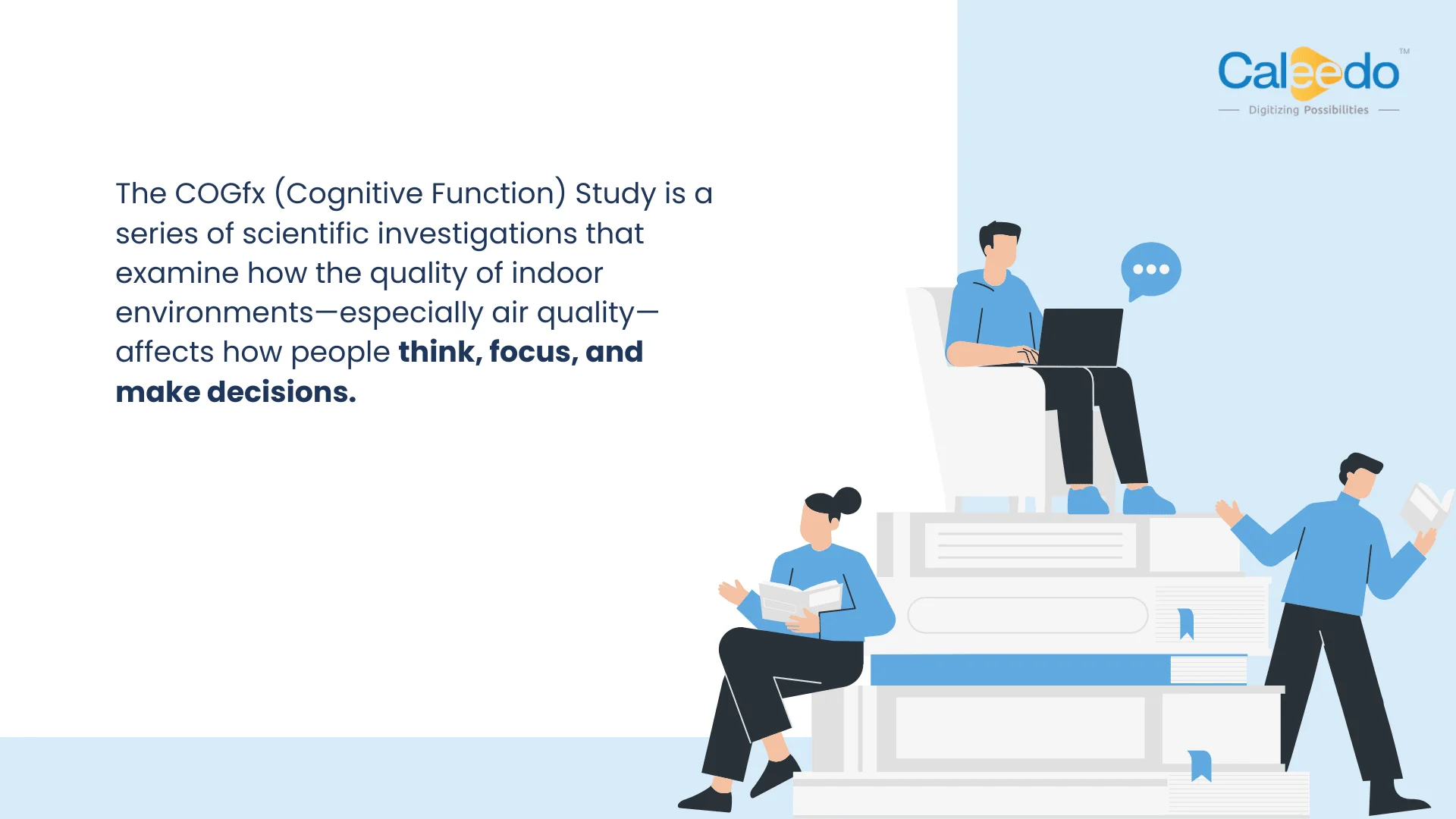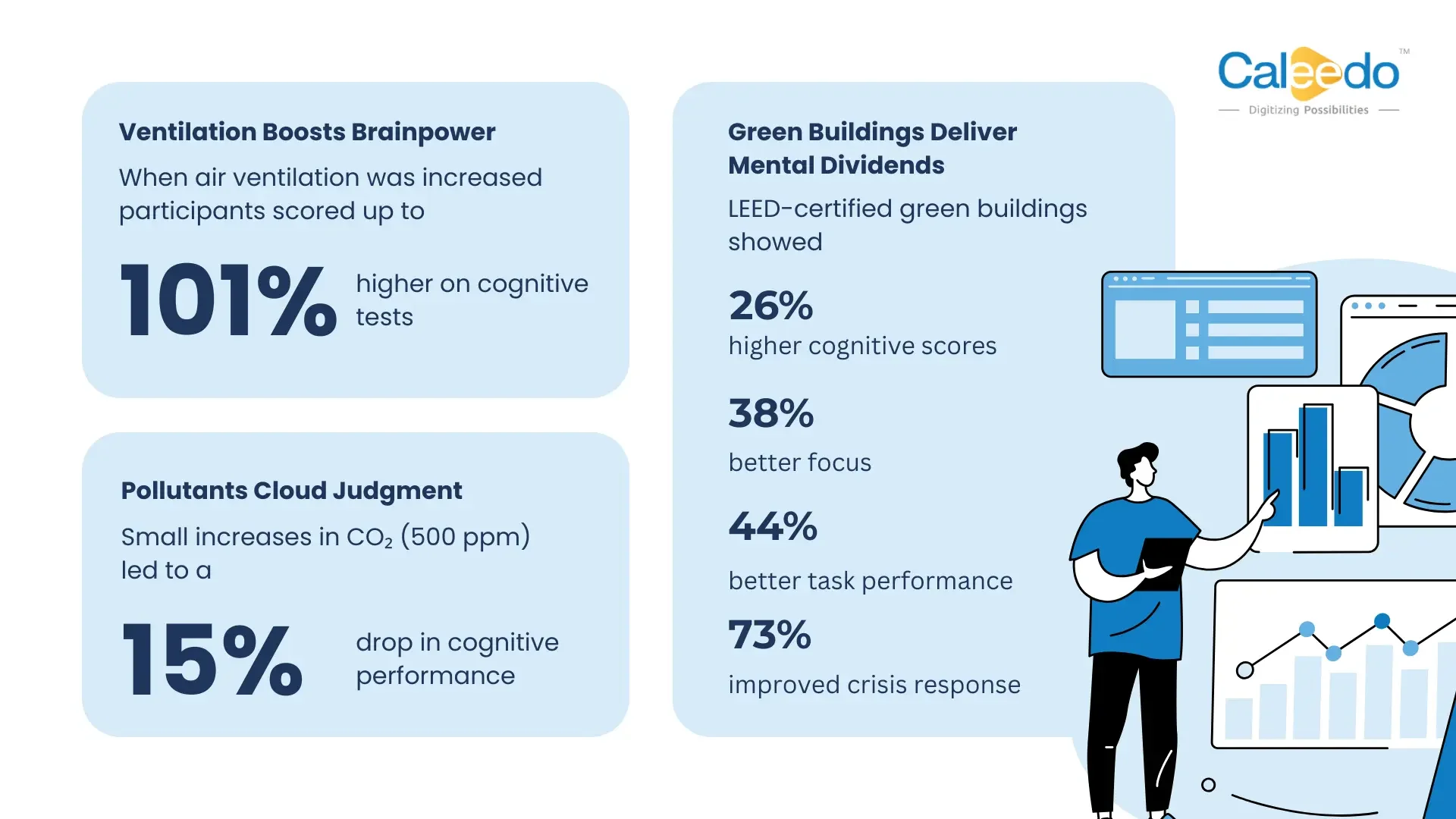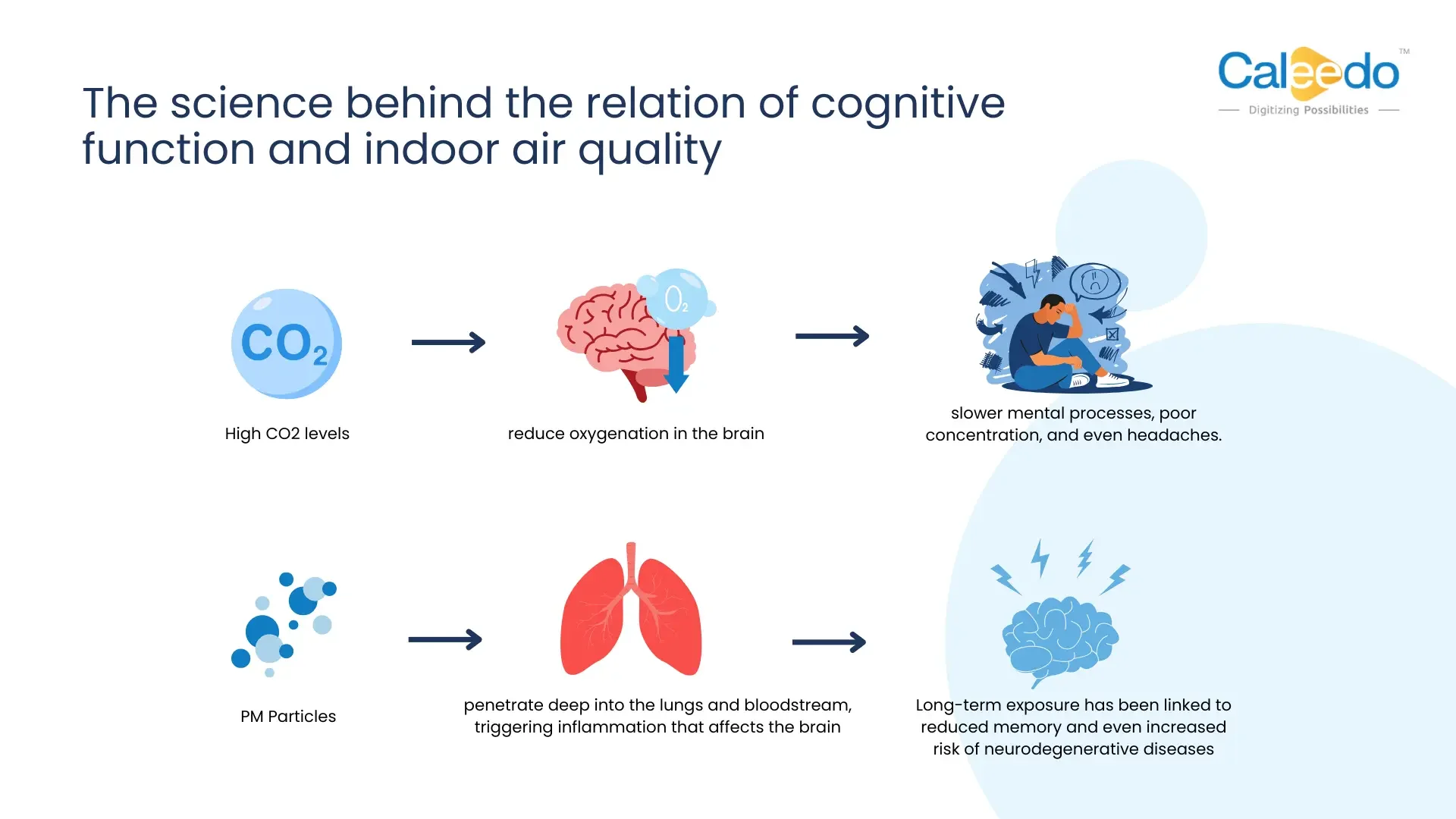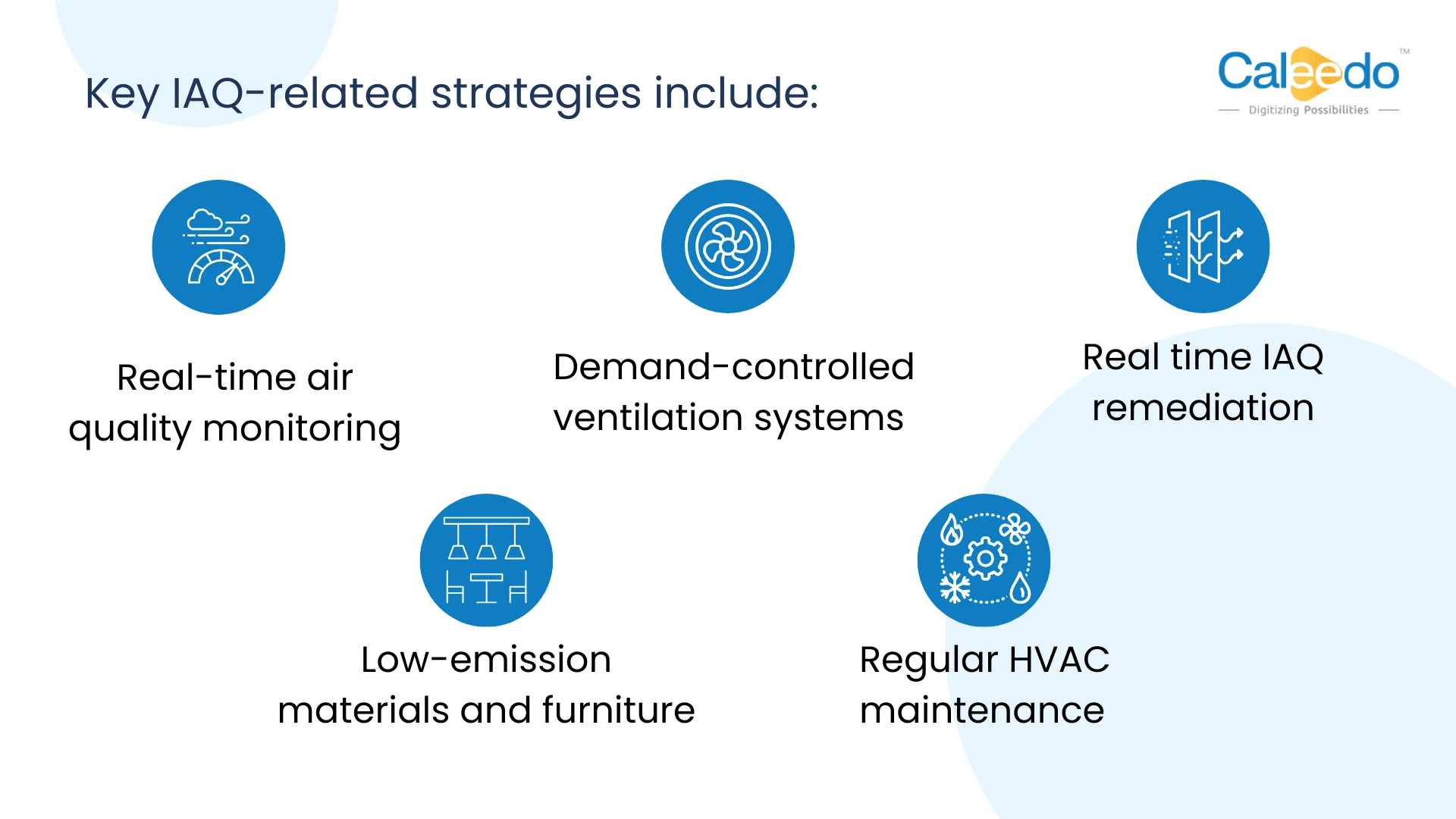The COGfx Study - How Indoor Air Quality Impacts Cognitive Function?

Your Brain Is Only as Sharp as the Air You Breathe
The average person spends nearly 90% of their time inside—in offices, homes, schools, and public buildings. This makes indoor air quality (IAQ) not just a matter of comfort, but a major factor in our health, productivity, and brain performance.
Groundbreaking research by Harvard University’s T.H. Chan School of Public Health, known as the COGfx Study, has drawn a clear, data-backed link between IAQ and cognitive function. The findings are both revealing and critical: Improved indoor air quality can substantially enhance cognitive function.
What is the COGfx Study?

Conducted in multiple phases starting in 2015, the study involved collaborations between Harvard, Syracuse University, and SUNY Upstate Medical University. It used real-world office settings and controlled lab simulations to measure the cognitive performance of participants exposed to different indoor air conditions.
The results? Simply improving indoor air—through better ventilation and reduced pollutants—led to dramatic improvements in cognitive performance across various domains like strategy, crisis response, and decision-making.

Effect of IAQ on How We Think
Across its three phases, the COGfx Study revealed several important facts:
1. Pollutants Cloud Judgment
The study also looked at the effect of carbon dioxide (CO₂) and fine particulate matter (PM2.5)—two pollutants common in indoor spaces. Even relatively small increases in CO₂ (500 ppm) led to a 15% drop in cognitive performance. A 10 μg/m³ increase in PM2.5 resulted in slower response times and lower accuracy.
In essence: stuffy, polluted rooms lead to foggy, less productive brains.
2. Ventilation Boosts Brainpower
Participants were placed in different controlled environments mimicking typical office conditions—conventional, green, and enhanced green buildings. When air ventilation was increased (doubling the outdoor air flow), participants scored up to 101% higher on cognitive tests.
These weren’t simple memory tests either. The assessments focused on real-world executive functions—like the ability to manage time, make decisions under pressure, and process information effectively.
3. Green Buildings Deliver Mental Dividends
In the real-world “Buildingomics” phase, office workers in LEED-certified green buildings showed:
- 26% higher cognitive scores
- 38% better focus
- 44% better task performance
- 73% improved crisis response
The link was consistent across countries, industries, and building types. Better air = better thinking.

What makes poor air quality such an improtant factor for cognitive health?
- CO₂ and Decision Fatigue: High carbon dioxide levels can reduce oxygenation in the brain, leading to slower mental processes, poor concentration, and even headaches.
- PM2.5 and Neuroinflammation: Fine particulate matter can penetrate deep into the lungs and bloodstream, triggering inflammation that affects the brain. Long-term exposure has been linked to reduced memory and even increased risk of neurodegenerative diseases.
- VOC Exposure: Volatile Organic Compounds—emitted from paints, carpets, furniture—can impair coordination, mood, and clarity.
Your brain needs clean oxygen-rich blood to function at peak capacity. Polluted indoor environments disrupt that supply chain.
What It Means for Workplaces
In workplaces, brain power is king. Employees make dozens of decisions every day—from strategic planning to quick-fire problem-solving. A small increase in cognitive function can mean the difference between a good and a great outcome.
The COGfx Study proves that investing in clean indoor air is not just a health strategy—it’s a business imperative.

Conclusion
The findings from COGfx helped kickstart a growing global movement around “healthy buildings”. This approach doesn’t just aim for green certification—it goes further to prioritize human well-being as a key performance metric.
We often focus on coffee, supplements, and productivity hacks to sharpen our mental edge—but forget the most foundational factor of all: air.
The COGfx Study is a wake-up call. It shows that we don’t need radical new inventions to boost human potential—we just need to optimize the environments we already live and work in.
Clean air shouldn’t be a luxury. It’s a neuroscience-backed necessity for better thinking, better decision-making, and better living.

